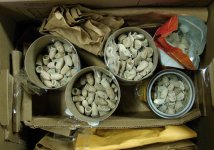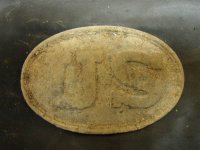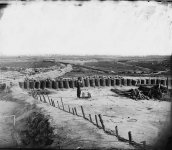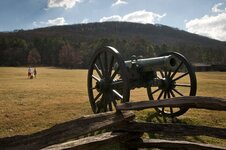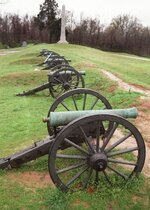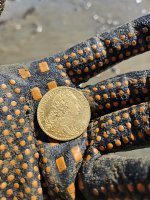Tom_in_CA
Gold Member
- Mar 23, 2007
- 13,804
- 10,336
- 🥇 Banner finds
- 2
- Detector(s) used
- Explorer II, Compass 77b, Tesoro shadow X2
When the risk/legalities of md'ing particular spots comes up, there is often the fear of tickets, fines, etc... being tossed out there. As the reason to not go, or ask permission, etc... And sometimes I have challenged those persons to cite such an example, if they have one, for if it's a seemingly innocuous place currently being discussed. So for example, the silly notion that you can be "fined, confiscated", etc... for merely having a detector in your trunk, while driving a throughfair road that passes through a national park.
But sure enough, sometimes someone can in fact come up with some admittedly scary links. Like this one for instance:
Metal Detecting Laws And What You Should Know.
Filled with stories of persons getting seriously roughed up for picking up an arrowhead or bottle, etc... The implication being: "Therefore we md'rs must grovel for permission, seek clarifications, etc.. Afterall, you don't want to be arrested like those people, right ?
And when someone comes up with these scary stories to answer my challenge, I have likened it to the potential of a motorist being pulled over and roughed up, for nothing but a tail-light out. In other words: SURE! fluke extreme stories are bound to exist, IN ANY ARENA.
So I had to chuckle as I clipped this out of the newspaper a few days ago. A fellow given a ticket, for eating a hamburger while driving. It was considered "distracted driving".
Ok, let's see a show of hands now: Now that I've shown proof-positive that you can be ticketed for eating while driving: Who here is going to stop eating while driving?

But sure enough, sometimes someone can in fact come up with some admittedly scary links. Like this one for instance:
Metal Detecting Laws And What You Should Know.
Filled with stories of persons getting seriously roughed up for picking up an arrowhead or bottle, etc... The implication being: "Therefore we md'rs must grovel for permission, seek clarifications, etc.. Afterall, you don't want to be arrested like those people, right ?
And when someone comes up with these scary stories to answer my challenge, I have likened it to the potential of a motorist being pulled over and roughed up, for nothing but a tail-light out. In other words: SURE! fluke extreme stories are bound to exist, IN ANY ARENA.
So I had to chuckle as I clipped this out of the newspaper a few days ago. A fellow given a ticket, for eating a hamburger while driving. It was considered "distracted driving".
Ok, let's see a show of hands now: Now that I've shown proof-positive that you can be ticketed for eating while driving: Who here is going to stop eating while driving?



